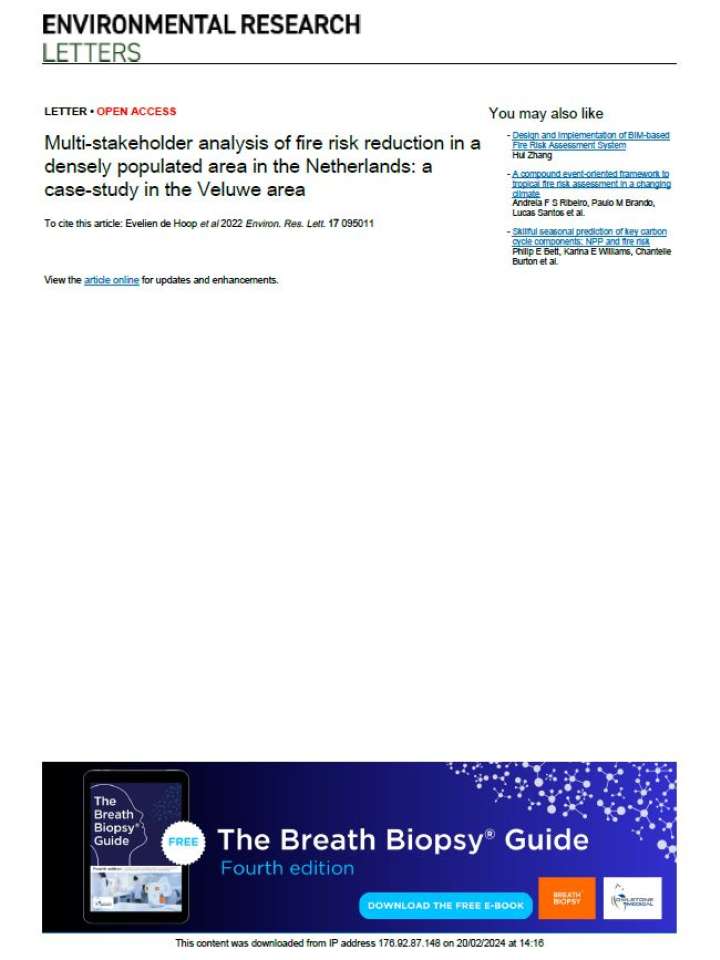Multi-stakeholder analysis of fire risk reduction in a densely populated area in the Netherlands: a case-study in the Veluwe area
This research letter investigates stakeholders' needs with regard to fire risk reduction in the Veluwe area in the Netherlands. This densely populated landscape is a popular tourist attraction, and it is one of the most fire-prone landscapes of the Netherlands, with abundant fuels and human ignition sources. The authors draw upon seven in-depth qualitative interviews with key stakeholders in the Veluwe area, which we situate in a wider review of existing literature. This analysis demonstrates that the rising incidence of uncontrollable fires poses four types of new challenges to these stakeholders in the Veluwe area.
First, stakeholders express the need to reshape existing policy tools and develop novel ones that create synergies between existing policy-priorities (e.g. biodiversity conservation) and fire risk reduction. Second, stakeholders argue for a critical rethinking of the value of landscapes in society, and the diverse roles that fire may play in landscape management research and practice. Third, developing such policy tools requires new modalities and platforms for multi-stakeholder and multi-level collaboration, which are currently lacking because the current and expected future risk of uncontrollable fire is unprecedented. And fourth, the development of effective policy tools requires new knowledge that is interdisciplinary, sensitive towards the local social and ecological characteristics of the area, and which approaches current fire risk challenges and their possible solutions dynamically.
Explore further

